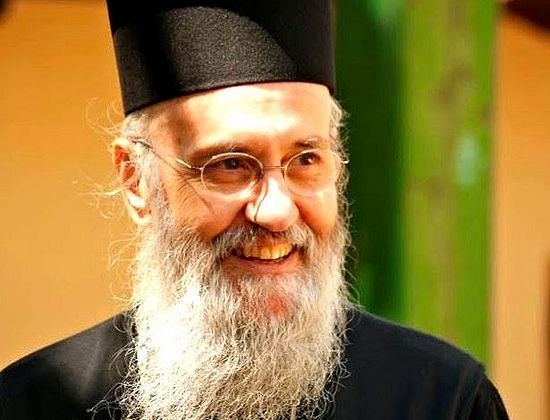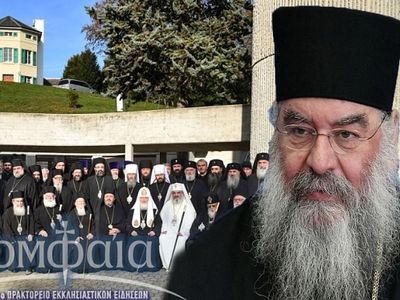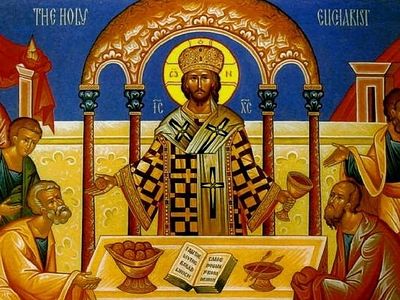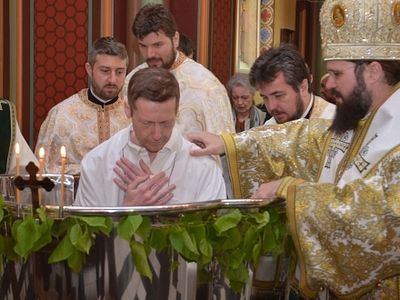Many times, at various meetings with people, even within ecclesiastical synodical bodies, the view is expressed that we must always agree on a matter, even if we hold a different opinion, for the “sake of unity”. It so happens that these synodical bodies, in which the same people partake, decide in a different way, a matter which is justified that this is being done “for the sake of” or “for” unity.
As there are some individuals, politicians, clergymen, that claim to toil for the unity of the body which they belong to, as if others are not concerned with unity.
It must be noted from the beginning that a unity in communion and the Church is ultimately the target we should aim for.
In the Church, particularly, this is the purpose of us all, since this is what was achieved on the day of Holy Pentecost per the Kontakion of the feast, “When the Most High came down and confused the tongues, he divided the nations. When he distributed the tongues of fire, he called all to unity”. This is the function of the Holy Spirit which operates in the Church. Therefore, the unity of the Church is the experience of Holy Pentecost, which is why unity (accord) exists in the theology of the Apostles and of the Holy Fathers.
However, it is imperative to note that unity can be found among those who do evil and those who make up a criminal organization, and aim towards creating division and malaise in society. These people are concerned with their unity so that they can do evil and not be exposed. Therefore, unity alone is not the aim, but the combination of unity with truth.
In Divine Liturgy, the faithful are encouraged with the words, “Having asked for the unity of the faith and for the communion of the Holy Spirit, let us commend ourselves and one another and our whole life to Christ our God.” Unity in ecclesiastical language is not abstract and unconditional but related to faith. It is a unity of faith, as it has been revealed by God to the Saints, linked clearly with the “communion of the Holy Spirit”, and certainly presupposes the surrender of our entire life to Christ. Such a unity is blessed by God and not a unity that might be shared by heretics, who are based on speculative reason and combat Orthodox doctrine.
Apostle Paul, in his letter to the Ephesians, advises Christians to struggle to keep the unity of the Holy Spirit, which is connected to the One LORD God, with the One faith and One baptism. He writes, …endeavoring to keep the unity of the Spirit in the bond of peace. There is one body and one Spirit, even as ye are called in one hope of your calling; one Lord, one faith, one baptism, one God and Father of all, who is above all, and through all, and in you all (Eph. 4:3-6). The unity of faith is connected to the One LORD, the One faith, the One baptism, the One body, the One Spirit.
Furthermore, the same Apostle in another verse speaks about the unity in deification: And He gave some to be apostles, and some prophets, and some evangelists, and some pastors and teachers, for the perfecting of the saints for the work of the ministry, and for the edifying of the body of Christ, until we all come into the unity of the faith and of the knowledge of the Son of God, unto a perfect man, unto the measure of the stature of the fullness of Christ (Eph. 4:11-13). This means that unity of faith is connected to the knowledge of the Son of God, and its aim is perfection; to acquire the measure of the stature of the fullness of Christ, which is deification.
The Fathers of the Church proceeded with the same perspective and strived to preserve the unity of the Church in the faith revealed, chasing away the heretics from the Church; those who were breaking up the unity of the Church with their heretical doctrines. Heretics were anathematized to ensure the unity of the faith and the unity of the Church. When the Fathers distanced the heretics from the Church, they did not shatter unity but defended it. Any other interpretation contradicts the function of the Ecumenical Councils of the Church.
Abba Dorotheus relates unity among Christians with the same belief. “Nothing unites as much as to rejoice for the same things and to have the same belief in Christ Jesus!” This statement is associated with many passages by Apostle Paul. For example, he writes to the Christians of Rome, Now the God of patience and consolation grant you to be likeminded one toward another, according to Christ Jesus, that ye may with one mind and one mouth glorify God, even the Father of our Lord Jesus Christ. For when we were yet without strength, in due time Christ died for the ungodly (Rom. 15:5-6). Likewise, to the Christians of Philippi, he writes, If there be therefore any consolation in Christ, if any comfort of love, if any fellowship of the Spirit, if any tenderness and mercies, fulfill ye my joy, that ye be likeminded, having the same love, being of one accord and of one mind (Phil. 2:1-2).
Saint Isaac the Syrian defines what exactly is meant by spiritual unity. He writes, “Spiritual unity is an unsealed and perpetual recollection, which incessantly blazes in the heart with ardent longing; and from perseverance in the commandments, the heart receives its capacity for this bond, not figuratively, nor in a natural way”. (Ascetical Homily 1:8). Spiritual unity is achieved through the keeping of the commandments of Christ and ignites the divine longing in the heart of people.
In society, there is much said about unity despite the existing differences of opinion, and this is what democracy aims for. The different authorities and their different programs dividing the parties, the different positions and their internal party operations, which are demonstrated through elections, when expressed in a democratic manner they are considered as an element of unity. In Church things are different. Unity is not a superficial agreement of views, and indeed those which are distinct from the tradition passed down, but is the fruit of the Holy Spirit, a communion of the Holy Spirit; it is a unity of faith.
Consequently, for the Church it is not possible “for the sake of unity” to negate Orthodox ecclesiology, Orthodox theology, and finally, to undermine the entire faith revealed. When a divergence from faith prevails, unity is not laudable. Contrarywise, the one who preserves the unity is the one who preserves the faith revealed. Likewise, one cannot follow diplomacy in ecclesiastical matters and recant and change opinions every time, and to characterize this mentality as a contribution to unity.
We live in a time in which the degradation of words cannot be allowed, especially the meaning of the word unity, for the sake of some artificial and changing diplomatic mentality, which hides elements of intent and utilitarianism.





